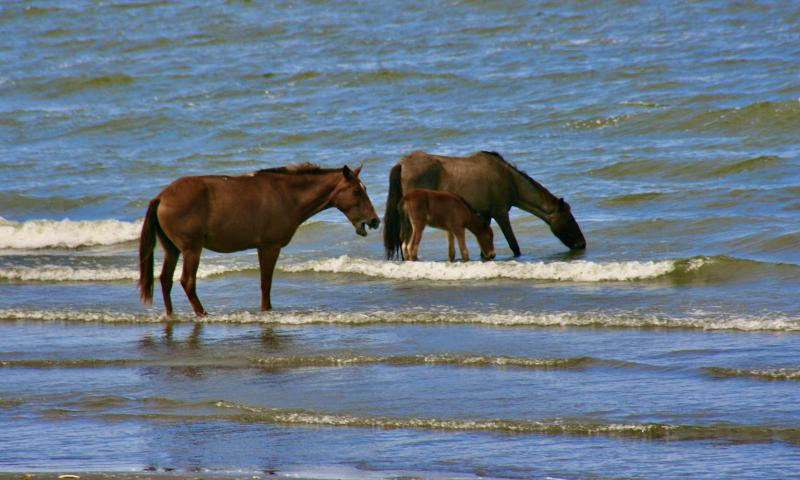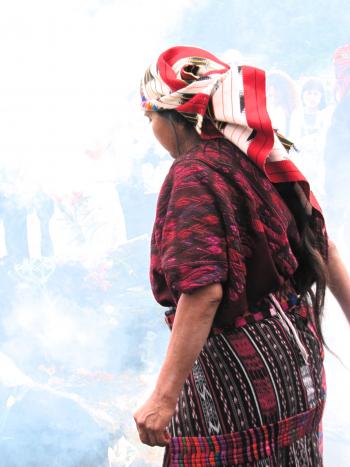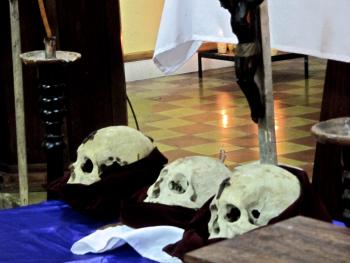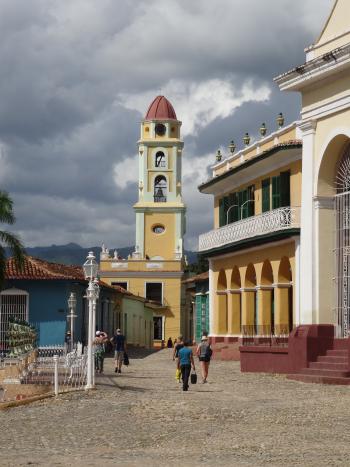Enjoying the planning process — getting ready for that next travel adventure
This article appears on page 6 of the May 2021 issue.
In pandemic mode, temporarily cut off from our travels, all that we have left to satisfy our adventurous spirits are our memories… and planning for the next trip.
As longtime friends and travel companions, we plan our own trips over several months, sometimes years, scouring blogs, asking others about their experiences and always reading everything available in ITN! We travel together about once a year to places that aren’t of interest to our other travel companions. We try to focus on the lived experiences of a typical resident, including local cultural and historical venues on our itineraries.
We share every aspect of the planning and feel that our approach to travel has increased our enjoyment and depth of understanding of each destination, as well as our friendship.
General guidelines
In our malaise of isolation, as we reminisce, we revisit the commonalities in our adventures that underlie how we think about travel. On trips to intriguing places like Nicaragua, Guatemala, Cuba, Serbia, Montenegro and Bulgaria, we viewed the highlights and searched out the unfrequented. We usually rely on local buses, ferries and trains to get around, often asking strangers we meet during our travels for recommendations, gaining unexpected information and insights along the way.
Although, as retired women, we are older than many people traveling without day-to-day guides, we are fairly fit and have rarely encountered any situation that made us uncomfortable.
We pack only what we can wheel or carry, and we keep up to date on electronics, apps and batteries so that we are able to feel confident that we’re in charge of our travel at all times.
Embracing compromise
As enduring friends, we are sensitive to each other’s strengths and needs. One of us must have coffee in the morning and the other must have tea. One of us is comfortable renting and driving a car in another country while the other has an excellent sense of direction and manages the maps, whether paper or electronic.
Over the years, we have settled into a way of managing our differences. Once in a while we have ice cream instead of dinner at the desire of one, and a glass of wine is often included at dinner at the desire of the other. Clearly, finding a congenial travel partner and working together is essential, and we embrace our differences with support and humor, which makes our trips easy and fun.
One example of how we cooperate in planning is from our August 2019 trip to Serbia and Montenegro.
When planning this trip, we quickly realized that getting around Montenegro would be more challenging than what we’d experienced on previous trips. So we decided not to rent a car, but this made it difficult to get into the mountains and small, non-coastal towns. The daytime train from Belgrade, Serbia, to Bar, Montenegro, seemed like the perfect compromise. It received high marks for scenery on its journey through the mountains, where there are few transportation links. By the time the oft-delayed train actually reached the mountains on our trip, however, it was getting dark.
In retrospect, we would recommend breaking the journey at Kolašin and staying overnight before continuing to Bar or possibly reversing the route, going from Bar to Belgrade instead.
Accepting the unexpected
When encountering misadventures, we have shared some hearty laughs, especially when the experience was just plain odd. An illustration from Cuba — we were passing between two different provinces in a taxi when, suddenly, the paved road ceased to exist. Our intrepid driver explained that the respective governors of the two provinces were not on great terms, and each refused to pave the area that connected their two roads. As a result, we were unexpectedly “off-roading”!
Sometimes, despite all our planning, an experience does not meet our expectations. While driving through the central area of Bulgaria, we hoped to stop at several archaeological sites, going out of our way to find one of the most important, the Sboryanovo Historical & Archeological Reserve. At the end of a bumpy road, we discovered it was inexplicably closed on a day it was listed as open. Given that we were on our way to Varna that evening to return our rental car, there was no recourse but to skip the visit, much to our dismay.
We have also learned to be prepared to reject substandard hotel rooms already booked, to walk a little farther to find that restaurant that came so highly recommended, and to speak with people along the way to learn from them and share experiences.
Professional travel companies might eliminate the setbacks from your touring, but we find the glitches often enhance the trip and create interesting memories.
While we are always accepting of the things that do not meet the guidebook-induced expectations, there are also events that would never make any guidebook but do make a trip memorable.
Who could forget the hike up a mountain on the island of Ometepe in Lake Nicaragua, where, as we stumbled through the flashlight-lit darkness, we found a guy serving pies from a pizza oven to a crowd sharing wine (and other stimulants)? This nearly matched our experience the prior day, when we waited far too long for our fried-chicken lunch next to the lake while watching loose horses cavort in the water. Finally served, we noticed that the four cackling chickens that were underfoot when we sat down had been reduced by one.
Local interactions
Meeting travelers from other parts of the world — joining in photos and subsequently emailing families we’ve met along the way — is one of the most rewarding parts of each trip. Through these interactions, we begin to understand a place and its importance in the eyes of other travelers also struggling to gain insights.
We were inspired by a couple, teachers, who had taken six months off to travel with their elementary school-aged children because they saw the value in teaching them that they are part of a very large and interesting world.
Talking to a family visiting their “home country” after immigrating to, and becoming citizens of, the United States gave us a critical insight into a place that would have been more opaque without their perspectives.
Sharing in celebrations and participating in events with local residents helps us gain some understanding of the people and cultures we are visiting.
During a Day of the Dead visit to San José, Petén, Guatemala, we experienced the Procession of the Skull. Three skulls of unknown provenance are kept at the town’s church, and each year one skull is chosen to be carried to the homes of the sick or those in need. There were few outsiders, and we were welcomed to venerate the skulls on display and walk amid the jostling crowd in the narrow streets with the villagers.
In Chichicastenango, in a crowded cemetery, we asked for a female shaman to perform a ceremony to bring good fortune.
In Eastern Europe, we went to dinner with a local who was willing to discuss the takeover of his country by the former USSR and his feelings about the eventual failure of the grab, and we heard from a young law student who was anxious to take part in revitalizing her country.
These interactions solidify why we travel in the first place: to learn more about the world and its people and how much we have in common.
After each trip, as we swap pictures and journals and recount our adventures for others, we use our experiences to begin to plan the next journey. And that is where we are now, in the midst of the pandemic, entertaining ourselves for months with debates about possible destinations.
One of us finds an old ITN article on Bangladesh (Sept. ’18, pg. 20), and that goes on the list; the other proposes Namibia, and that is added.
The list is long, and our lives are getting shorter, but we’re having fun making plans. There are more people to meet and more cultures to explore, and this is one way we can stay connected to our world.




